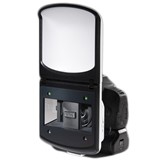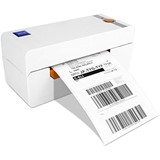Invest Australia
The industry operates within a sophisticated and mature infrastructure, yet costs associated with developing and conducting trials of new devices, including diagnostics, are less in Australia than in the USA or Europe.
The Australian market for medical scientific equipment is approximately US$3 billion. The Asia-Pacific market for medical equipment and medical/surgical consumables is estimated at US$18 billion. Australia's medical device companies lead the world with expertise in instrumentation, electronics and engineering to produce devices in the fields of cardiovascular, ophthalmology, orthopaedics and sleep medicine.
Australia has had numerous success stories where medical devices have been combined with other medical areas such as materials, diagnostics and pharmaceuticals. An example is the combination of devices and pharmaceuticals by SIRTeX, whose primary objective is to research, develop and commercialise effective treatments for liver cancer using novel small particle technology. The company aims to become the world leader in liver cancer treatment products and its products are already being used in 22 hospitals across the US, as well as numerous hospitals in Europe, Asia, New Zealand and Australia.
Australia has a well-established medical device industry in which many smaller companies cater to specialist markets, alongside larger businesses that have achieved worldwide commercial success and strong export markets.
Cochlear and ResMed are considered two of Australia's international success stories. Cochlear is the global industry leader in hearing implant technology, having developed the cochlear implant for people with profound hearing impairment. Cochlear is working on more than 90 collaborative research projects in 60 countries and Cochlear's nucleus products are used in more than 1000 clinics worldwide, supporting recipients in more than 78 countries.
ResMed is a leading respiratory medical device manufacturer, specialising in products for the diagnosis and treatment of sleep disordered breathing (SDB). One key area of focus for ResMed is the link between SDB and life-threatening conditions including hypertension, stroke, and heart disease.
ResMed Inc was named in FORTUNE's 2004 annual list of America's Fastest Growing Companies based on annual growth in sales and earnings over the past three years and total stock market return. ResMed was also named in Forbes' list of the 200 Best Small Companies in America in 2004. ResMed has been recognised by Forbes for eight consecutive years and this year ranked 29th on the list.
In June of 2004, ResMed marked its 37th consecutive quarter of growth. The company grew its sales by 24 per cent over the prior year to reach $339.3 million in revenues for the fiscal year ended 30 June 2004.
Australia is considered one of the world's leading nations in creation and diffusion of science and technology. An example of this is the Cooperative Research Centre for Eye Research and Technology (CRCERT), responsible for developing the 30-day contact lens, which overcame the problems of hypoxia associated with earlier versions of lenses worn for long periods. The lens was developed by a group which included commercial partners Bausch and Lomb Pty Ltd and Ciba Vision Pty Ltd, four tertiary institutions, one research institute, and the Commonwealth Scientific and Industrial Research Organisation (CSIRO). CRCERT is currently investigating four areas which will contribute to the ultimate contact lens: surface compatibility, avoiding bacterial contamination, ocular comfort and clinical research.
A network of smaller, specialist companies in Australia fill a niche market where innovation, research and development, and adoption of technology, play a major role in bridging successful international partnerships. Products range from laser-based surgical tools for ophthalmologists to special polyurethane materials for incorporation into implantable medical devices.
Ventracor is in the advanced stages of development of VentrAssistTM, a readily implantable mechanical device that acts as a permanent alternative to heart transplant therapy for people with congestive heart failure. VentrAssistTM has been designed to assist the function of a failing heart rather than to replace the patient's heart, and is small enough for use in children as well as adults. VentrAssistTM has an estimated global market of between US$7.5 billion and US$12 billion per year. A clinical trial to gather data and support a CE Mark application and approval to sell in Europe is underway. Ventracor's submission to the US FDA for permission to conduct a clinical trial in the USA was made in December 2004.
Optiscan Imaging is a publicly listed Australian company with a wholly owned subsidiary, Optiscan Inc, in the USA. The company specialises in the development of miniaturised confocal microscopes that combine optical fibre and laser technologies, and are capable of examining living tissue to detect pathological changes at the cellular and sub-cellular levels. Optiscan has negotiated a A$20 million collaborative development and commercialisation agreement with Asahi Optical Co Ltd of Japan (Pentax) to develop technology in the field of flexible confocal endoscopy. In January 2005 Optiscan Imaging received a first year order worth over A$5 million from Pentax for supply of miniaturised microscope components that will be used to produce a new type of medical instrument called a flexible endo-microscope.
AorTech Biomaterials is involved in the development and refinement of polyurethane material technologies for use in components of medical devices, such as synthetic heart valves and coronary blood vessel grafts, where biostability, good mechanical strength and high resistance to fatigue, abrasion and tear are essential properties. The company's family of Elast-EonTM products have superior properties to the silicon rubber products traditionally used in these situations.
AorTech recently signed a global, non-exclusive technology licence and material supply agreement with Abbott Laboratories for the use of its polymer biomaterial technology Elast-EonTM in Abbott's interventional cardiology products.
Agenix subsidiary Agen Biomedical specialises in the diagnosis of human and animal diseases. Agen Biomedical is progressing the commercialisation of ThromboViewTM, its technology for imaging blood clots. ThromboViewTM has met all clinical and regulatory milestones to date and is generating significant anticipation from thrombosis experts around the world as it enters Phase II trials in the US and Canada. A June 2004 independent report into ThromboView'sTM commercialisation plan and financial mode projected peak annual sales for the technology of $570 million.
USCOM is an Australian company providing unique products and services for the health care industry. USCOM provides a safe, painless, accurate and cost-effective solution in any clinical application where haemodynamics form a part of patient management. The USCOM Ultrasonic Cardiac Output Monitor is the first truly non-invasive, accurate and hands-free monitor which measures blood flow across the heart valves using Continuous Wave (CW) Doppler ultrasound, a technique which can accurately show variations in haemodynamic patterns. The USCOM machine displays real-time data about cardiac function across nine headings, ranging from Heart Rate to Litres-Per-Minute. Before the USCOM machine, cardiac monitoring needed personnel and often required an invasive procedure.
USCOM recently announced its principle North American partner in the field of cardiology. The company has signed a collaborative agreement with the University of Arizona Medical Centre in Tucson for advanced research into the applications for USCOM in heart failure management, cardiac transplantation and post cardiac surgery. In February 2005 the US FDA issued the necessary 510K Pre-Market Notification to USCOM signalling regulatory clearance.
Portland Orthopaedics developed the Margron Total Hip Replacement System, which was first conceived in 1991 and has been fully researched and developed in Australia and the USA. The Margron prosthesis was first implanted in 1997, initially as a primary hip replacement, and after two years of successful application the range was expanded to include revision and oncology implants. Over 700 patients have now received the Margron Hip prosthesis. Portland manufactures the entire range of prosthetic components and instruments therefore maintaining complete control over quality assurance and supply. To date the Margron prosthesis can be used by surgeons in the following countries: Australia, New Zealand, United States, Canada and Israel.













-160x160-state_article-rel-cat.png)








